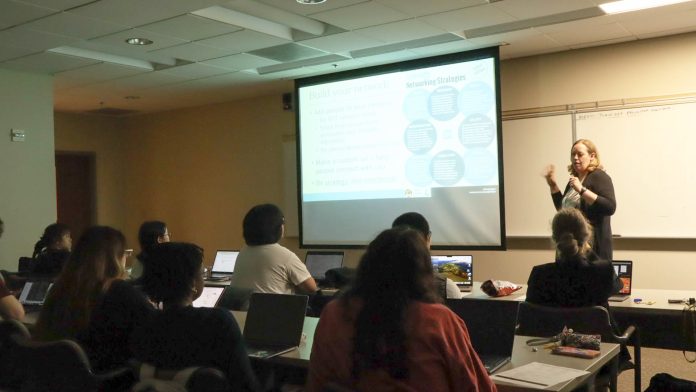
Spring Semester is almost at an end, and you are scrambling to find the perfect summer plan that aligns with your career goals. Finding the perfect summer internship can feel overwhelming, especially at this time in the school year, but fear not! Breaking it down into manageable steps can make the process much easier. Here's how to land that valuable experience without the stress.
- It is Never Too Late:
Ideally, you should begin your research months before summer arrives, preferably in January or February. Since organizations in different fields have varying recruiting timelines, it is always good to know the deadlines of your top choices! However, don't give up if you're starting late. Some companies have last-minute openings when other students back out or their needs change. While large corporations might finish hiring by March, smaller companies, startups and nonprofits often look for interns closer to summer as their project needs become clearer. You could also consider reaching out directly to smaller businesses with a personalized email explaining your skills and availability. Sometimes, creating your own opportunity works better than waiting for a formal posting.
2. Know Where to Look:
Sami Cheema ‘26, a Computer Science major, said, “Instead of only cold applying for internships, try to build a presence on LinkedIn and focus on networking. And by networking, I don’t just mean sending connection requests or messaging people only to ask for referrals. Start a genuine conversation. Ask questions about their work, try to schedule a quick call, and learn from their experience. Once there is a rapport, the topic of internships can come up naturally and that is when you can mention you are currently looking. It feels more organic and leaves a better impression.”
Skimming through job boards, LinkedIn, mailing lists and advertisements might feel overwhelming, so knowing where to look is important. It all depends on what type of internship you want to apply for. For corporate roles, focus on Handshake, Indeed and LinkedIn with specific keyword alerts. Research positions need direct outreach to professors months in advance, while government internships like congressional roles are best found through official House and Senate memoranda that rarely appear on standard job boards. LinkedIn and other job boards are great for other fields. Don't underestimate the power of networking—connecting with upperclassmen and alumni can uncover hidden opportunities. Checking department email lists, professional association websites and company career pages directly will significantly expand your options beyond mainstream platforms.
3. Stand Out From the Crowd:
Companies look at hundreds of applications, so you need to tailor yours in a way that stands out from the rest. Authenticity and communication are something that you always need to remember when it comes to resumes, cover letters, graphic design samples, writing samples and even interviews! After applying or interviewing, always send a personalized thank-you email within 24 hours that references specific conversation points. This small gesture can make a lasting impression, as many hiring managers note that fewer than half of candidates take this crucial step. Ask questions after interviews because this shows your curiosity and interest in the job. Make sure to contact the Hubbard Center for assistance. Lastly, don't underestimate the power of genuine enthusiasm—it matters!
4. Don’t get Discouraged:
Remember that finding an internship is partly a numbers game. It is amazing if you hear back from 15 companies even if you applied to a hundred! Each rejection will bring you a step closer to the right opportunity, and there is a lot to learn from the growth you will experience during the application process. The skills you develop while searching—persistence, professional communication and resilience—are the same qualities that will help you succeed in your future career. Trust that your efforts will lead you to an opportunity that opens doors to experiences that will shape your professional journey in meaningful ways. This is just the beginning of an exciting chapter in your career story.
